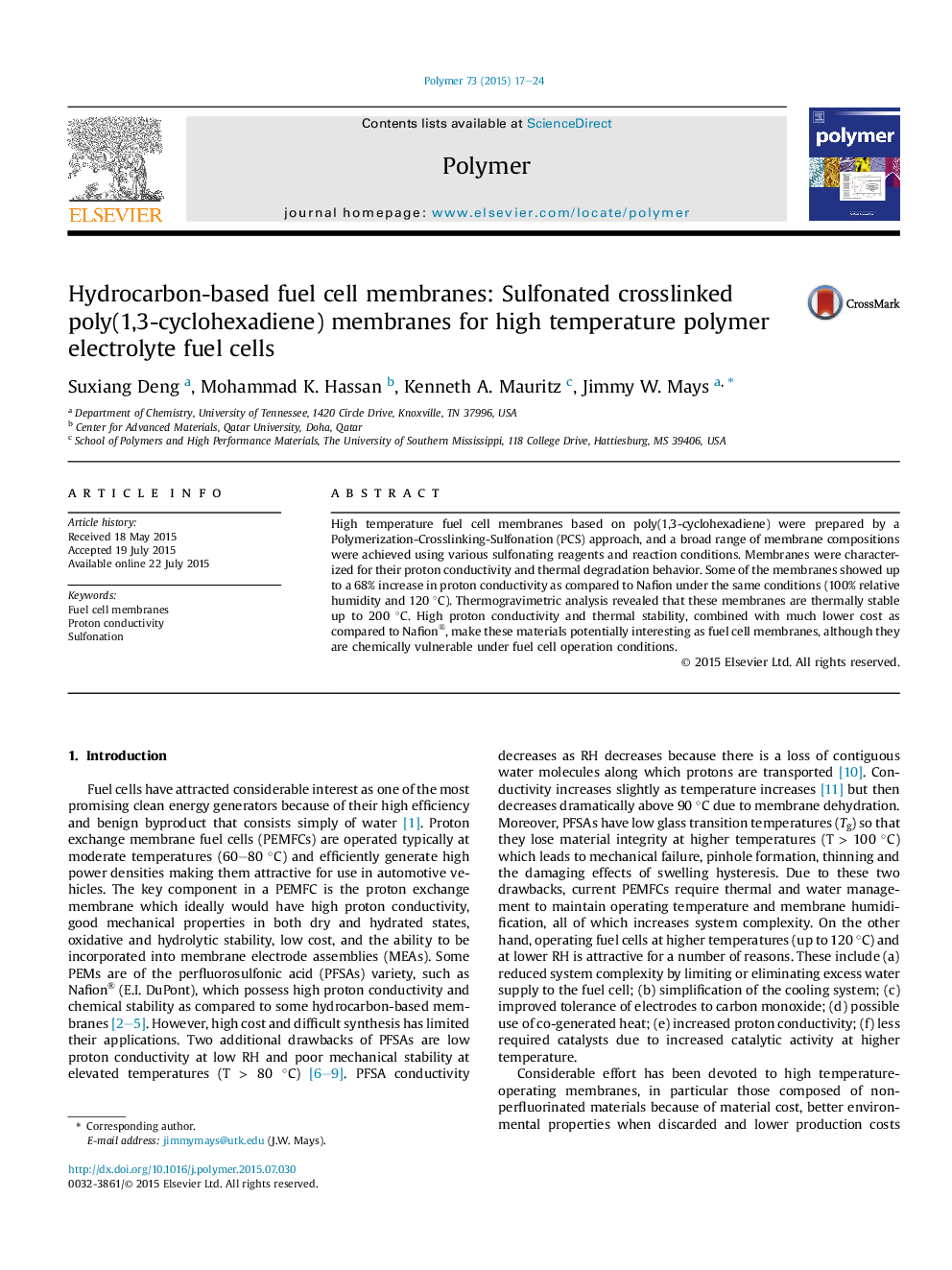| Article ID | Journal | Published Year | Pages | File Type |
|---|---|---|---|---|
| 5180072 | Polymer | 2015 | 8 Pages |
Abstract
High temperature fuel cell membranes based on poly(1,3-cyclohexadiene) were prepared by a Polymerization-Crosslinking-Sulfonation (PCS) approach, and a broad range of membrane compositions were achieved using various sulfonating reagents and reaction conditions. Membranes were characterized for their proton conductivity and thermal degradation behavior. Some of the membranes showed up to a 68% increase in proton conductivity as compared to Nafion under the same conditions (100% relative humidity and 120 °C). Thermogravimetric analysis revealed that these membranes are thermally stable up to 200 °C. High proton conductivity and thermal stability, combined with much lower cost as compared to Nafion®, make these materials potentially interesting as fuel cell membranes, although they are chemically vulnerable under fuel cell operation conditions.
Related Topics
Physical Sciences and Engineering
Chemistry
Organic Chemistry
Authors
Suxiang Deng, Mohammad K. Hassan, Kenneth A. Mauritz, Jimmy W. Mays,
